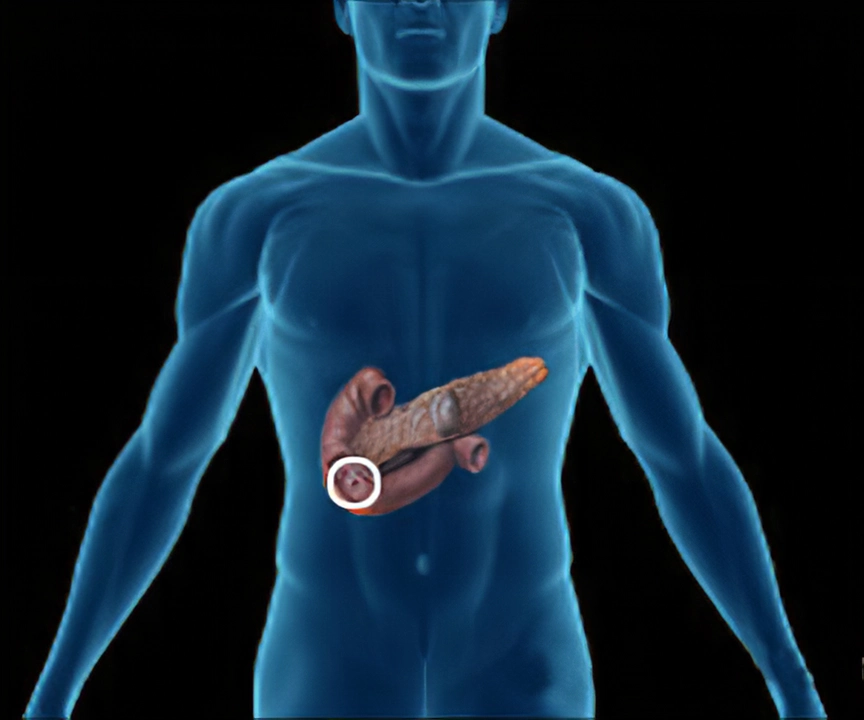Understanding Zollinger-Ellison Syndrome
Zollinger-Ellison Syndrome (ZES) is a rare medical condition that occurs when a tumor, called a gastrinoma, forms in the pancreas or the upper part of the small intestine. This tumor secretes excessive amounts of gastrin, a hormone that stimulates acid production in the stomach. Consequently, the excessive acid production can lead to severe ulcers in the stomach and the small intestine, causing various gastrointestinal disorders. In this article, we will discuss the link between Zollinger-Ellison Syndrome and gastrointestinal disorders.
Recognizing the Symptoms of Zollinger-Ellison Syndrome
It is crucial to recognize the symptoms of Zollinger-Ellison Syndrome in order to diagnose and treat it properly. The most common symptom of ZES is abdominal pain, which can be severe and persistent. Other symptoms include diarrhea, nausea, vomiting, weight loss, and gastrointestinal bleeding. In some cases, patients may also experience heartburn and gastroesophageal reflux (GERD) as a result of the increased acid production in the stomach. If you are experiencing any of these symptoms, it is essential to consult with your healthcare provider for proper evaluation and diagnosis.
How Zollinger-Ellison Syndrome Affects the Gastrointestinal System
Zollinger-Ellison Syndrome has a significant impact on the gastrointestinal system due to the excessive secretion of gastrin. Gastrin is a hormone that stimulates the production of hydrochloric acid in the stomach, which is essential for breaking down food and killing bacteria. However, excessive acid production can damage the lining of the stomach and the small intestine, leading to the formation of ulcers. These ulcers can cause pain, bleeding, and even perforation of the gastrointestinal wall, which can lead to life-threatening complications.
The Role of Gastrinomas in Zollinger-Ellison Syndrome
Gastrinomas are the tumors responsible for the excessive secretion of gastrin in Zollinger-Ellison Syndrome. They are usually found in the pancreas or the upper part of the small intestine, and they can be benign or malignant. The presence of a gastrinoma can lead to a significant increase in acid production, which in turn causes damage to the gastrointestinal system. It is essential to identify and treat gastrinomas to alleviate the symptoms of ZES and prevent the development of further gastrointestinal disorders.
Diagnosing Zollinger-Ellison Syndrome
If you suspect that you may have Zollinger-Ellison Syndrome, it is crucial to seek medical advice for proper diagnosis. Your healthcare provider will likely begin by reviewing your medical history and conducting a physical examination. They may also order various tests to measure the level of gastrin in your blood and to detect the presence of a gastrinoma. These tests may include blood tests, imaging studies such as CT scans or MRI, and endoscopic procedures to examine the gastrointestinal tract.
Treatment Options for Zollinger-Ellison Syndrome
Once diagnosed with Zollinger-Ellison Syndrome, your healthcare provider will discuss the available treatment options with you. The primary goal of treatment is to reduce the excessive acid production and alleviate the symptoms associated with gastrointestinal disorders. Some common treatment options include medications to reduce acid production, such as proton pump inhibitors (PPIs) and H2 blockers. In some cases, surgical removal of the gastrinoma may be necessary, especially if the tumor is malignant or causing severe complications. It is crucial to follow your healthcare provider's recommendations for the best possible outcome.
Managing Gastrointestinal Disorders Associated with Zollinger-Ellison Syndrome
Living with Zollinger-Ellison Syndrome and the associated gastrointestinal disorders can be challenging, but there are ways to manage your symptoms and improve your quality of life. Make sure to follow your healthcare provider's advice on medications and treatment options. Additionally, making certain lifestyle changes, such as avoiding foods that trigger acid production, eating smaller meals, and maintaining a healthy weight can help alleviate symptoms. It is also essential to monitor your symptoms and seek medical attention if they worsen or if you notice any new symptoms.
Preventing Complications of Zollinger-Ellison Syndrome
While Zollinger-Ellison Syndrome is a rare and complex medical condition, early diagnosis and proper treatment can help prevent complications and improve your quality of life. By addressing the excessive acid production and managing the associated gastrointestinal disorders, you can reduce the risk of severe complications such as bleeding ulcers, perforation of the gastrointestinal wall, and even the development of certain types of cancer. Stay proactive about your health, consult with your healthcare provider regularly, and follow their recommendations to ensure the best possible outcome.



